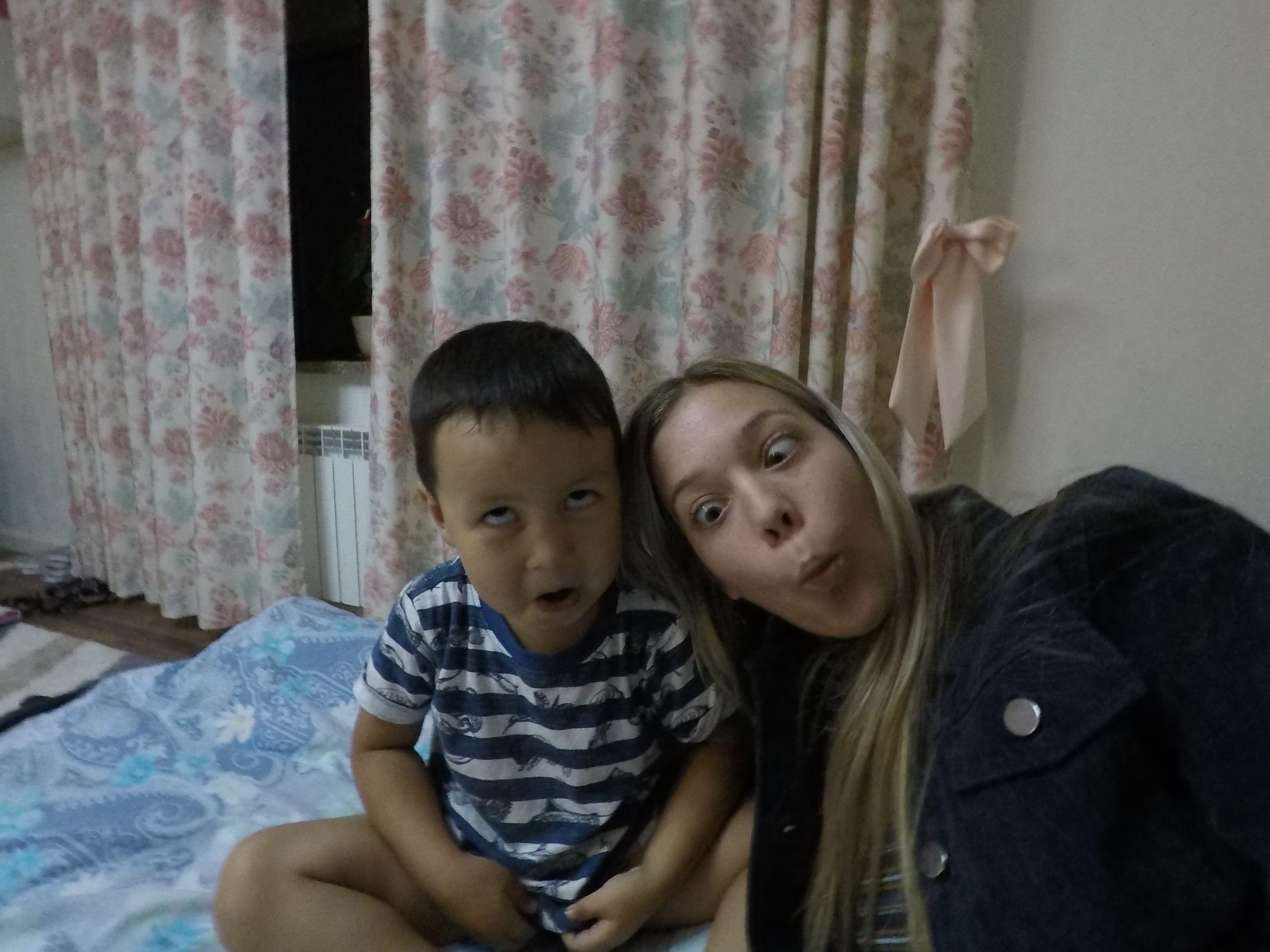

Living With a Host Family: Pros and Cons + My Experiences!
Living with a host family is one of the best opportunities to become fully immersed in the culture of a country and be exposed to your target language. Rather than being a tenant, you are part of the family, and this provides a truly unique perspective when traveling and getting to know your host country.
As with most things in life, living with a host family has its advantages and its disadvantages. Depending on your lifestyle, preferences, and level of comfortability, living with a host family may or may not be the right choice for you. And that’s alright if that’s the case! While a convenient method for immersion, choosing to stay with a host family is not the end-all-be-all for language acquisition.
Not able to study abroad? Check out the language learning tips in my article 9 Tips To Self-Study A Foreign Language In 2022.
Last updated: 2/23/2022
So, let’s start with the cons to help you determine if opting to live with a host family while abroad is a good choice for you.
CONS OF LIVING WITH A HOST FAMILY

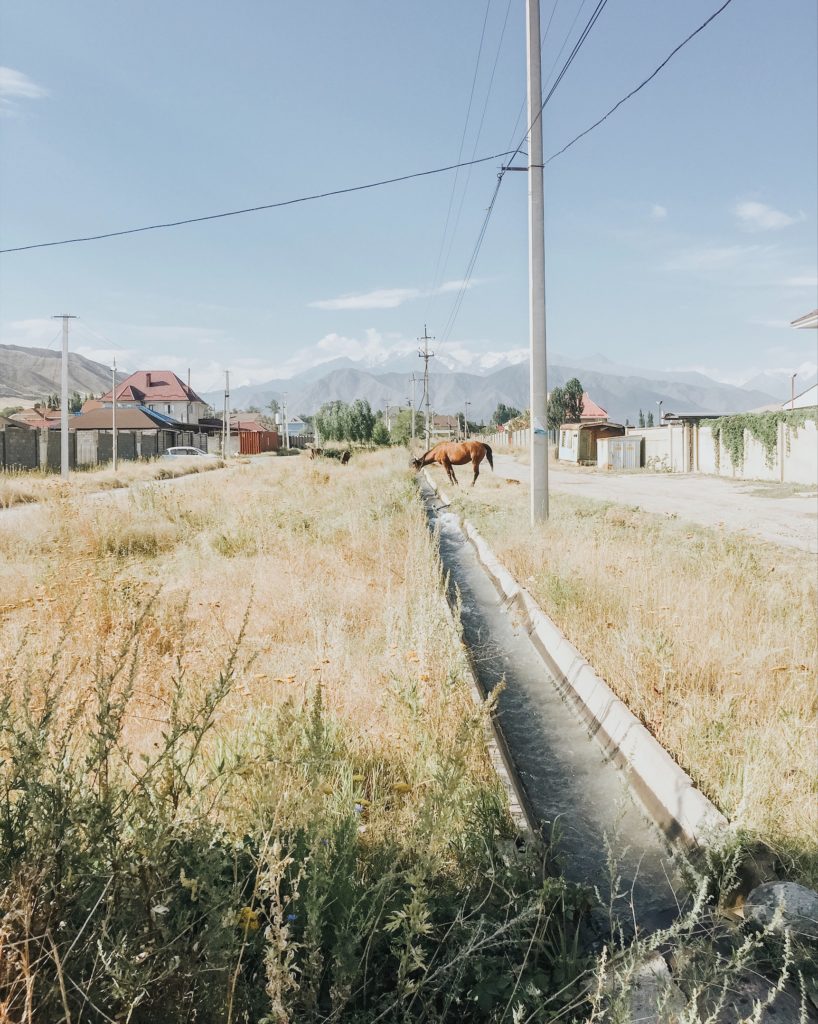

1. You are (usually) not able to choose your location
If you are studying through a program that places you with host families, you typically don’t get a say in the location of your host family’s house/apt. It will always be within a reasonable distance to your place of study, but one that is mostly a roll of the dice. My first host family lived about 45 minutes away from my school which wasn’t ideal, but I got lucky with my second host family who lived only 10 minutes away from school. Although the location is a bit of a gamble, you can put in preferences for pretty much every other aspect of your ideal host family profile.
2. You relinquish some freedom when you don’t live alone
This means you must be courteous of their rules. If your host family observes certain religious practices, or have children, you obviously shouldn’t come home plastered. It is pretty standard that you have your own room and a desk for school work. Obviously, it won’t be dead silent – If you have children in your host family (which has its perks – I’ll talk later about it) they have the potential to be noisy… because they’re children and that’s what they do. Wifi is not always guaranteed. I’ve always had wifi, but my KZ program had a few students without wifi.
House rules – Depending on your lifestyle, certain rules that your hosts might have may feel restricting to you. I’ve gotten lucky and had host parents that didn’t really care when I came or went, just as long I was safe and they could account for me at all times. I’ve had friends who said their host parent imposed curfews or other rules that they weren’t used to having. This could be frustrating if you’ve gotten accustomed to a certain degree of freedom, say leaving for college and living without parents for a certain amount of time, and now you suddenly have some new parents, who aren’t your parents, telling you what to do. So, the type of “new” parents that you get is out of your control. In my experience, the host families don’t really mind what you do, as long as you’re safe, but each family is different.
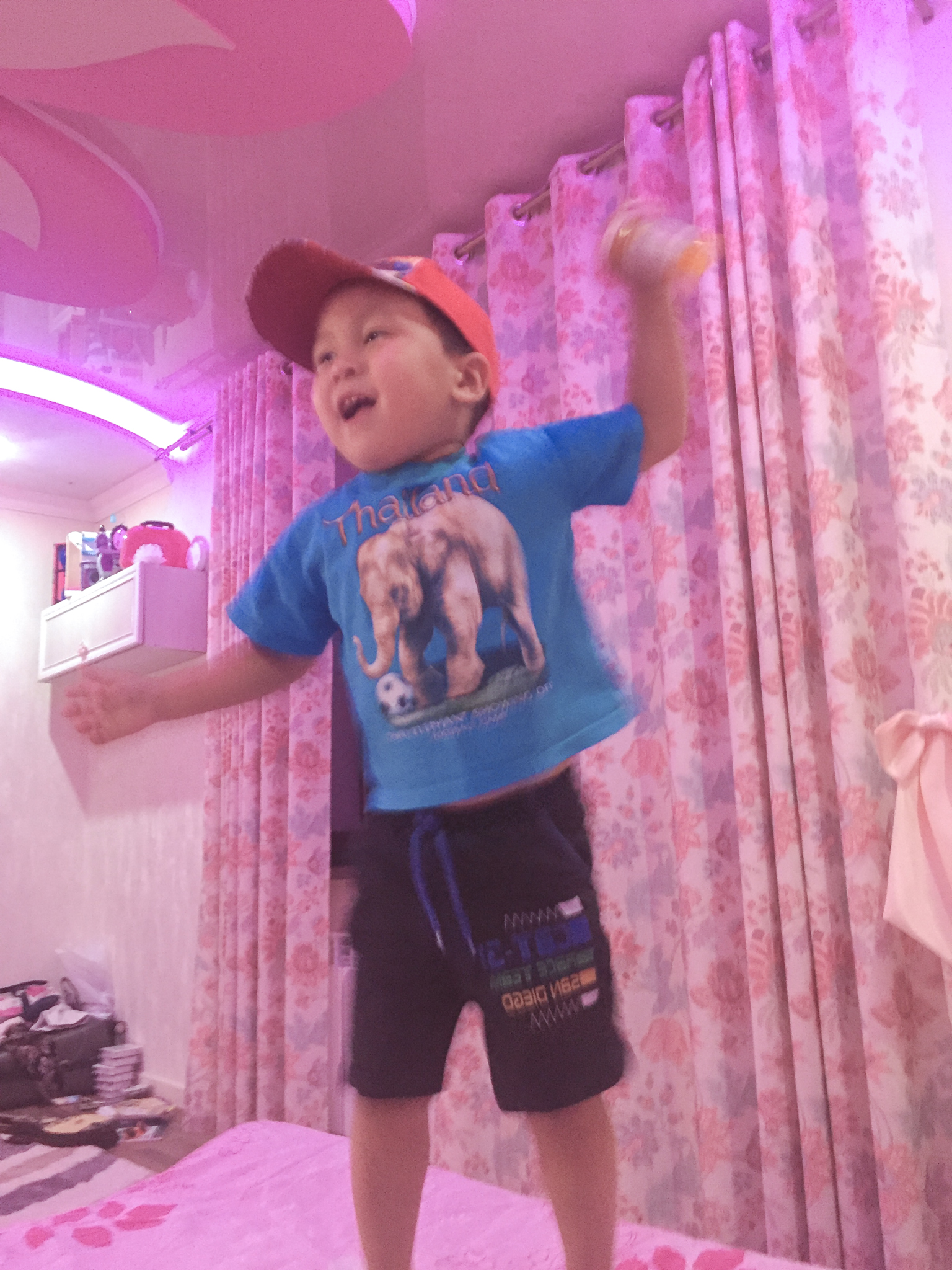



Interesting decor of my Russian host mom's bathroom3. You take a gamble on comfort level
Your host family will not have all of the amenities you are used to having at home, and this is something you should not expect going into a host family program. Although some host families may be more well off than others, don’t expect a flat screen TV and a Keurig. It is important to remember that host families are usually well-compensated for their participation in the program, and this is often a large factor in deciding to host you.
On that note, it is also important to remember that this family has welcomed you into their home willingly. One comfort-related aspect I did not anticipate encountering was feeling like an imposition sometimes. Depending on the standard of living in your host country, you may be taking the room of the children because the family needs the money that your stay provides. When I first realized I was taking the children’s room and they would all be sleeping in one bed (mother and two girls) I felt wildly uncomfortable and almost offered to take the couch.
If you find yourself in a similar situation, it is important to remember that they opted into this arrangement, and are doing so for a reason. Whether it be the money, the cultural experience for them, it was their choice and you should respect that. If you tiptoe around the residence for your stay, not only might you offend your host, but you won’t enjoy yourself either. Consider it your home and don’t be afraid to leave your room.
PROS OF LIVING WITH A HOST FAMILY



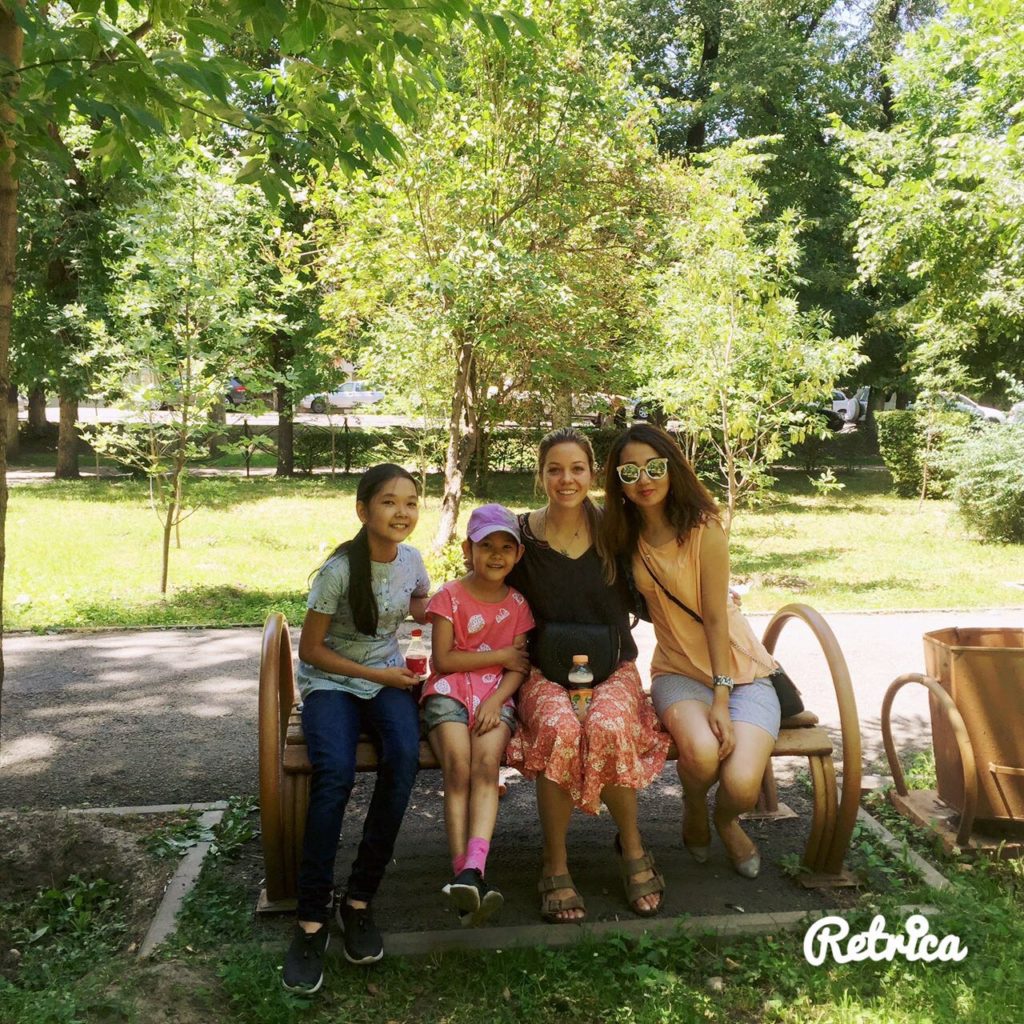

1. The sheer amount of language and cultural exposure that you wouldn’t get in a dorm/hostel/Airbnb
There is no better way to practice a language and learn about a culture than living with a host family, and participating in the day-to-day activities in that country. The saying “When in Rome, do as the Romans do,” could not be more appropriate for describing the immersive experience staying with a host family offers. You will eat, sleep, and breathe your target language, and get to know your host family as, you know, real people.
2. You have the opportunity to forge long-lasting relationships and find a home abroad
Host families are tasked with not only feeding you and keeping a roof over your head, but also ensuring your stay is comfortable and you feel included. My host families in the past always took me grocery shopping with them, took me to nearby historical sites to better acquaint me with their city’s history and culture, and even took me on out-of-town excursions like to the family dacha! You are truly incorporated into the family when you stay with a host family, and provides a great opportunity to learn and reflect on the local culture.
In addition to learning about the general culture of my host country, I also really enjoyed hearing personal stories of the family and their relatives. I’ve always been super interested in the Soviet Union and how it affected the day-to-day lives of its residents, so hearing first-hand accounts of what it was like was just fascinating. Giving history a human face makes it so much more personal and meaningful, so I appreciated being able to have those experiences and interactions to reflect on.
3. It’s not a blind match
One of the most common misconceptions about living with a host family is that you are blindly assigned to an available host family. Just like with a “Random” college roommate, you are still able to give your preferences about what kind of family you’d like to be paired with. Before your program starts, you will typically fill out a questionnaire with multiple questions about living preferences such as level of desired independence, kids/pets, smoking/non-smoking, and other related questions designed to ensure you are matched with a family you’ll be comfortable with.


My host sister in Kazakhstan 
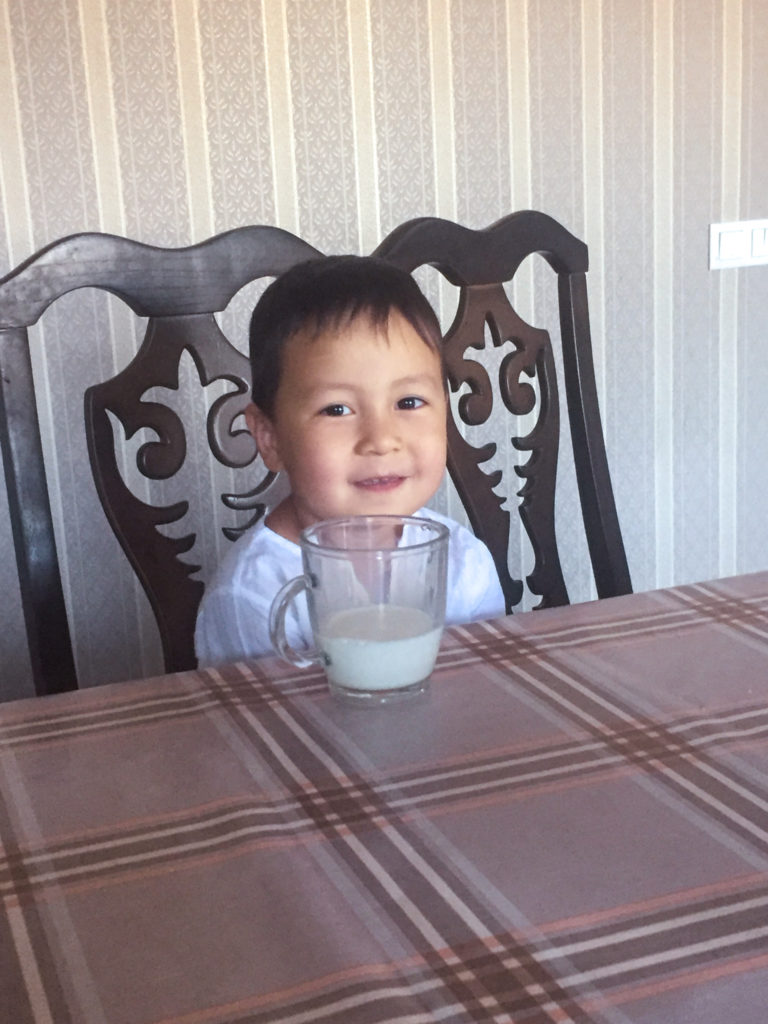
My host brother in Kyrgyzstan 

My host mother’s cat in Russia
4. Bonus: Kids & Pets
As I mentioned above, you’re able to indicate your preference for a host family with/without kids and pets! This was a huge perk for me because I wasn’t allowed to have pets in the dorms so I missed having animals, and I love kids! I knew it would be a benefit for me to live with kids so that I could watch cartoons (It’s a great way to learn the language!), and play games with them. I indicated this in my questionnaire all 3 times I stayed with host families, and I was placed with a host family who had either animals or pets all 3 times.


Короче говоря…
Like most things in life, living with a host family is entirely what you make of it. There are pros and cons and, depending on your preferred lifestyle, one might outweigh the other. Regardless, I highly recommend trying it at least once.
Living with a host family was the best decision I made when going abroad and allowed me to connect with the language and culture on an even deeper level than I could have imagined. I still stay in touch with my host families, and I know that I will always have a second family across the globe. 🙂
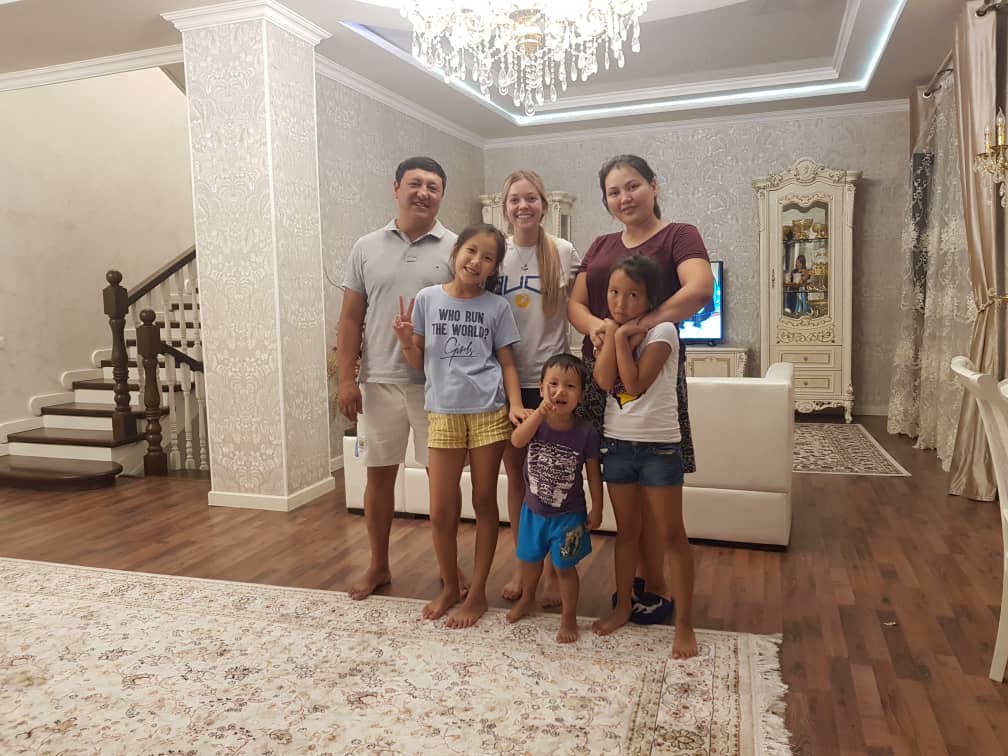

Learn to speak russian
Travel with ease & dive into the culture, history & lifestyle of post-Soviet countries
free russian learning materials

Melissa

Get the Goods
Head over to the Language & Travel Shop to check out my favorite goodies I use for learning Russian and traveling! I've compiled all my favorite products I use when #onthebloc so that you can benefit from them when you travel abroad. Help yourself prepare and support this blog at the same time :) Счастливого пути!




carry-on goods
gifts for travelers
photography
apparel & accessories
textbooks & readers
luggage & bags

categories
#oTB essentials

Russian-Speaking Travel Destinations
use your new russian skills in real life!

Belarus
EASTERN EUROPE
central Asia
central Asia





Eurasia
Russia
Kyrgyzstan
armenia
Moldova
Kazakhstan
eastern europe
read »
read »
read »
read »
read »
read »
The caucasus
travel guides
Get your FREE #OnTheBloc Starter Kit!
Sign up for the NGB Monthly Newsletter & you'll get a FREE downloadable PDF with Russian language and travel resources for your post-Soviet journey!
оставаться на связи














